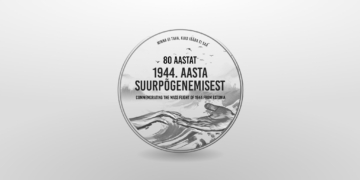Twenty years ago The New York Times agreed with the administration’s foreign policy that favored democratization of the Soviet Union but not its disintegration. On November 6. 1989, the paper published a dissenting letter, and supplied its own headline.
Ago Ambre
November 6, 1989
To the Editor:
Your observation that the Baltic republics, Latvia, Lithuania and Estonia, ”are far from becoming economically viable in the next few years” (”A Sound Course on the Baltics,” editorial, Oct. 21) applies more to the Soviet Union than to the Baltic states. The three republics, although producing only 4 percent of the Soviet gross national product, account for 12 percent of Soviet consumer-goods production. The economies of these three are well diversified in sharp contrast to the monocultures the central government in Moscow forced on many other areas. In addition, about 25 percent of Soviet trade flows through the Baltic states, a source of substantial income even now.
The three republics know that the Soviet Union will always be their major trade partner. But since Moscow cannot yet concede that private ownership is a powerful stimulant for economic growth, to mention one factor blocking meaningful economic reform in the Soviet Union, the Baltic states are making a case for doing it their way, to use the phrase Gennadi I. Gerasimov, Soviet Foreign Ministry spokesman, applied to Hungary and Poland (front page, Oct. 26).
Given demographic change fostered by central government policies – in Estonia the number of Estonians grew 1.6 percent over the last decade, while the number of non-Estonians, mostly Russians, increased 16.6 percent – concern over an ever-increasing immigration rate is understandable. Even Moscow, under similar pressure, has taken steps to limit immigration in sharp contrast to policies that heretofore have favored movement of the Russian population to the Baltic states.
It is difficult to understand why peaceful Baltic states, as independent as Finland, could not be more attractive economically than they are as stunted socialist republics in the Soviet Union. The West should also keep in mind that of all the countries trampled in World War II, all regained independence, even if nominally, except for three. Are Estonia, Latvia and Lithuania once again chips in a big-power exercise of ”improving relations”?
AGO AMBRE Silver Spring, Md., Oct. 26, 1989
The writer is an economist in the Department of Commerce.



























